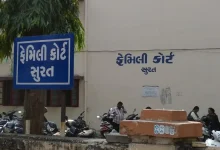
The Indian military has conducted targeted strikes against terrorist facilities in Pakistan and Pakistan-occupied Kashmir (PoK) in response to the deadly April 22 Pahalgam attack that killed 26 individuals. The military operation has been designated “Operation Sindoor.”
Multiple explosion reports emerged from various locations across Pakistan and PoK, with video evidence showing blasts in several areas. According to Indian Army officials, a total of nine terrorist-linked sites were targeted during the operation. The mission utilized a coordinated approach involving land and sea-based attacks jointly executed by India’s Army, Navy, and Air Force. All branches of the military were involved in the operation, and Mumbai Samachar reports that no Indian aircraft were lost during the mission.
Sources indicate that “Operation Sindoor” specifically aimed to eliminate high-ranking terrorist leaders from organizations including Jaish-e-Mohammed in Bahawalpur and Lashkar-e-Taiba in Muridke. Nine specific locations were identified and struck, with officials reporting all attacks on terrorist camps as successful.
India’s intelligence agency RAW provided precise coordinates for the nine key targets prior to the strikes. National Security Advisor Ajit Doval reportedly conducted more than 15 high-level meetings with defense and security officials to plan and oversee the operation.
Prime Minister’s Oversight
Prime Minister Narendra Modi continuously monitored the operation from his residence at 7, Lok Kalyan Marg, receiving real-time updates from NSA Doval. Following the official announcement of the operation’s completion, various ministers and political figures across party lines took to social media platform X to praise the Indian Army, with many sharing graphics featuring the text “Operation Sindoor.”
An official statement confirming Operation Sindoor’s success indicated that the Indian Army had targeted terrorist infrastructure in Pakistan and Pakistan-occupied Jammu and Kashmir that had been used to plan and direct attacks against India.
“Our actions have been focused, measured and non-escalatory in nature. No Pakistani military facilities have been targeted. India has demonstrated considerable restraint in selection of targets and method of execution. These steps come in the wake of the barbaric Pahalgam terrorist attack in which 25 Indians and one Nepali citizen were murdered. We are living up to the commitment that those responsible for this attack will be held accountable,” the statement declared.
In a separate communication, the Indian Embassy stated that India possessed “credible leads, technical inputs, testimony of the survivors and other evidence pointing towards the clear involvement of Pakistan-based terrorists in this attack.” The embassy further noted, “It was expected that Pakistan would take action against terrorists and the infrastructure that supports them. Instead, during the fortnight that has gone by, Pakistan has indulged in denial and made allegations of false flag operations against India.”
In response, Pakistan’s Prime Minister Shehbaz Sharif characterized the Indian strikes as an “act of war” and promised a “befitting reply.” Sharif confirmed that India had conducted attacks on five locations in Pakistan under the codename “Operation Sindoor.”




